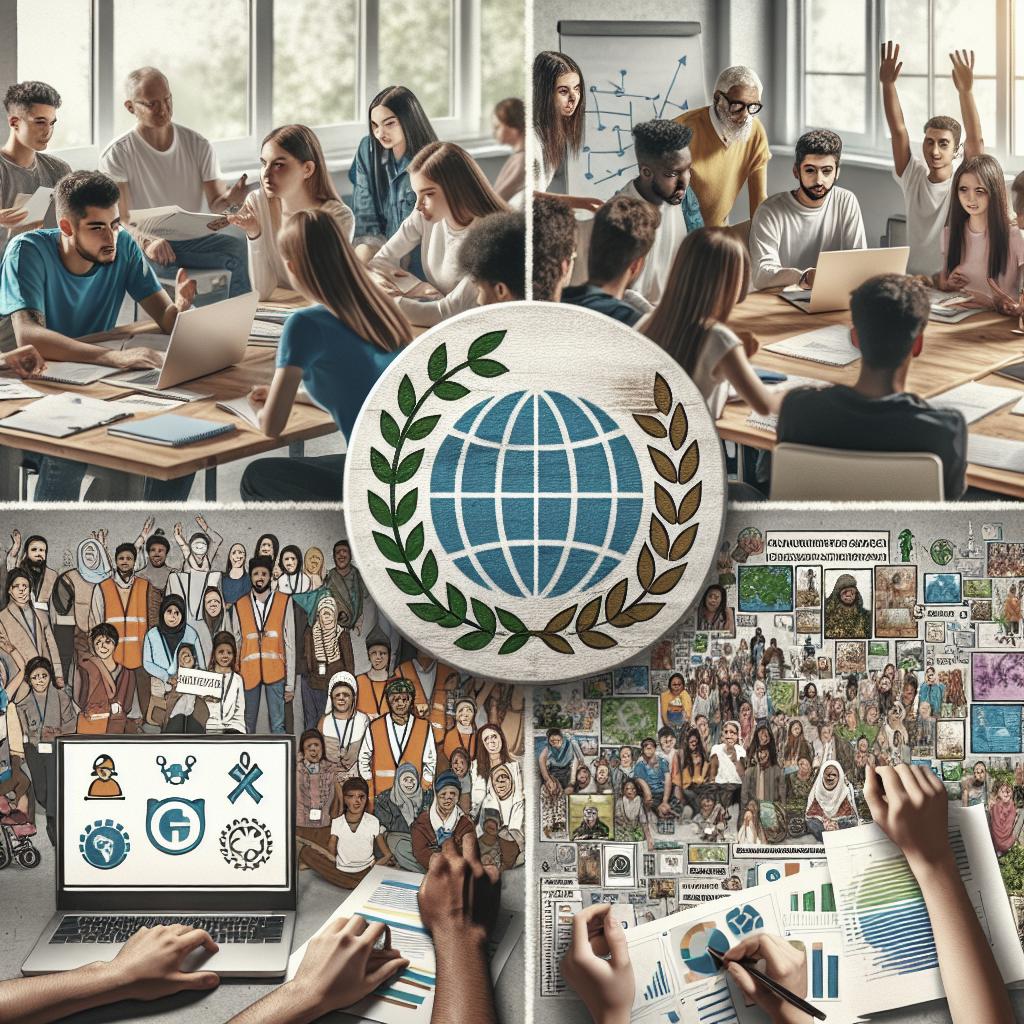“`html
How to Engage Youth in NGO Activities
Engaging young people in NGO activities is crucial for driving social change and ensuring sustainability in community projects. As digital natives, the youth bring fresh perspectives and innovative ideas, which can greatly enhance the efficacy and reach of NGOs. This blog post explores effective strategies to involve young individuals in NGO work. We discuss when and how to engage them, outline five practical ways for participation, and offer additional resources. By understanding and implementing these engagement techniques, NGOs can empower youth groups and foster a dynamic and inclusive environment for social good.
Deciding When and How to Engage Young People
The involvement of young individuals in NGO activities should not be an afterthought but rather a strategic initiative. Understanding the right time to engage youth is crucial for maximizing their input. Early engagement in decision-making processes fosters a sense of belonging and commitment. Whether brainstorming for projects or executing tasks, young voices can provide insight that shapes the foundation of an organization’s long-term goals.
Moreover, determining how to engage youth effectively involves an analysis of their interests and strengths. Tailoring roles that align with their skills and passions not only motivates participation but also ensures they contribute meaningfully. Flexibility in engagement methods can accommodate diverse schedules and learning preferences, making it easier for youth from various backgrounds to participate.
Five Ways Organizations Can Engage Youth
Inform
Providing information is the first step in engaging youth with NGOs. It involves sharing knowledge about current issues, organizational goals, and strategic plans. Creating informative newsletters, social media updates, and webinars can effectively engage young audiences and spark their interest in various causes. Visual storytelling and interactive content can further enhance engagement, making information more relatable and accessible.
Youth are more inclined to participate when they understand the impact of their potential involvement. By maintaining transparency and simplifying complex messages, NGOs can establish trust and motivate proactive engagement. Information should not just be one-way; encouraging feedback through surveys and forums allows NGOs to gauge interest levels and adjust strategies accordingly.
Consult
Consultation is a higher level of engagement where youth input is sought to influence decisions and policies. NGOs can establish youth advisory committees or focus groups to ensure young voices are heard. Engaging in consultative dialogues provides youth with a platform to express opinions and propose solutions, fostering a sense of ownership in the projects.
Moreover, consulting with youth can reveal innovative ideas that might otherwise be overlooked. Inviting them to participate in workshops or town hall meetings can uncover unique perspectives, allowing organizations to stay connected with younger communities’ evolving needs and aspirations.
Involve
To involve youth is to actively integrate them into organizational processes. NGOs can create volunteer opportunities, internships, and project-based tasks that engage young talents directly. Assigning meaningful tasks provides practical experience and helps develop skills, which can be intrinsic for both personal growth and organizational success.
Furthermore, involving youth in ongoing activities engages them more deeply, making them feel valued and part of the team. This commitment enhances retention and builds a pipeline of future leaders who are already familiar with the NGO’s culture and mission.
Collaborate
Collaboration with youth redefines traditional adult-youth dynamics, positioning young individuals as partners rather than just participants. Developing co-led initiatives allows young people to be at the forefront of planning and execution, ensuring solutions are youth-centric and innovative.
NGOs can encourage collaborative decision-making by organizing hackathons, peer-to-peer networks, and youth-led conferences. These platforms enable shared learning and leadership development, fostering a culture of mutual respect and shared contribution.
Youth-Led
Youth-led engagement ensures projects are not just for young people but driven by them. Providing resources and support for youth to design and implement their initiatives empowers them and catalyzes change. Mentorship programs can be instrumental here, guiding youth while allowing them the freedom to explore their ideas.
Allowing youth to take charge fosters creativity and accountability, making them stakeholders in the NGO’s success. This approach transforms the narrative from passive engagement to active leadership, inspiring not only individual growth but broader community transformation.
Additional Youth Engagement Resources
Many resources are available for NGOs looking to enhance youth engagement. Online platforms, such as youth networks and community forums, offer space for information exchange and collaboration. Similarly, publications and toolkits on youth engagement strategies can provide valuable insights and practical guidance.
NGOs should also consider partnerships with educational institutions that can facilitate access to youth groups and provide opportunities for experiential learning. By tapping into existing youth platforms and resources, NGOs can bolster youth involvement and achieve greater impact in their initiatives.
This Post is Related to:
This article relates to building sustainable engagement models within NGOs and highlights successful methods for incorporating youth into community service and advocacy roles.
NEXT >>
The continuation of this discussion on youth engagement within NGOs can be found in our forthcoming post, where we delve deeper into creating targeted youth programs and measuring impact effectively.
Hurricane Helene Disaster Relief Funding + Youth Homelessness
These topics emphasize the importance of innovative youth involvement in addressing critical issues, such as disaster response and social justice, by leveraging their unique perspectives and digital fluency.
| Steps | Description | Outcome |
|---|---|---|
| Inform | Share information and enhance awareness about NGO activities. | Build knowledge and interest in youth communities. |
| Consult | Seek youth input in decision-making processes. | Foster a sense of ownership and collect innovative ideas. |
| Involve | Integrate youth through volunteer roles and internships. | Develop skills and strengthen commitment to NGO goals. |
| Collaborate | Partner with youth for mutual contribution and growth. | Enhance mutual respect and leadership skills. |
| Youth-Led | Support youth-driven initiatives and mentorship. | Empower young leaders and transform communities. |
“`


